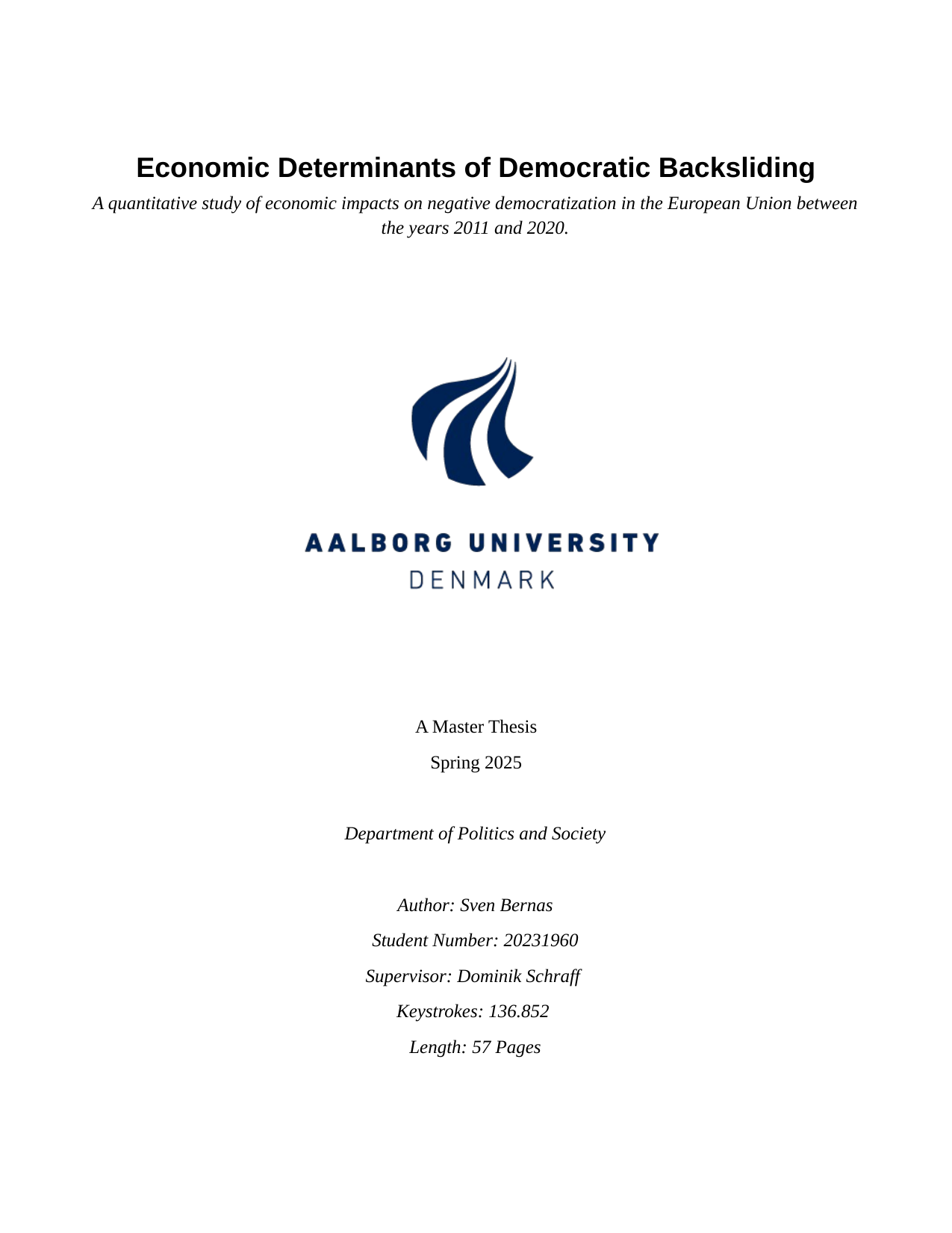
Economic Determinants of Democratic Backsliding: A quantitative study of economic impacts on negative democratization in the European Union between the years 2011 and 2020.
Author
Term
4. semester
Education
Publication year
2025
Submitted on
2025-05-27
Pages
57
Abstract
This thesis investigates the economic determinants of democratic backsliding within the European Union (the EU) in the period from 2011 to 2020. Democratic backsliding is a term describing deliberate erosion of democratic norms and institutions by elected officials. The research of democratic backsliding has increasingly challenged the assumption that economic prosperity ensures democratic resilience. While previous literature has largely focused on the role of economic development in democratization, this study explores specifically the effects of macroeconomic indicators. Impacts of various economic variables reflecting economic strength, prosperity, growth, and stability were tested using mixed statistical methods. The data were gathered for countries of the EU. This region is characterized by diverse levels of economic and democratic development, and official sources provide periodically transparent data on economic performance, inequality, institutional strength, prosperity, and stability. Utilizing a panel data of 27 EU member states over a decade-long period of time, the research employs Ordinary Least Squares (OLS) regression and Generalized Method of Moments (GMM) estimators to assess the relationship between various economic indicators and democratic backsliding. The effect of democratic backsliding is measured as a negative annual change in compound indexes reflecting democratic development. Operationalized V-Dem project compound indexes are used as sources for the measurements of backsliding. The Liberal Democracy Index and Polyarchy Index serve as source variables for backsliding, which is the main dependent variable in this study, but also serve independently as dependent variables for assessing the effect of independent variables on democratization. Independent variables include both absolute and relative economic indicators such as GDP growth, inflation, unemployment, income inequality (Gini coefficient), government deficit, national debt, public budget deficit, and GDP per capita income adjusted for purchasing power. The independent variables are tested for their impacts in regard to their relativity. Impacts of absolute annual change and impacts of relative change compared to the EU average are compared, examining the importance of economic prosperity perception. Control variables reflecting education levels, age composition, and corruption are included to isolate the effect of economic variables. The findings indicate that economic performance has an influence on democratic backsliding. Indicators of fiscal responsibility, namely the national debt and deficit of public finances, show significant short-term impact. Government spending then demonstrates longer-term impact, suggesting that perceived absolute financial mismanagement can undermine institutional legitimacy. Relative income measured in GDP per capita compared to the EU average also appears to play an important role. Data highlight the importance of comparative economic standing over absolute prosperity in per capita income. Lastly, the study of structural effects found that economic effects are more pronounced in postcommunist countries and countries with high inflation represented by dummy variables. The findings suggest that civic engagement, historical experience with democracy, institutional fragility, and instability of the system can have magnifying effects.
Keywords
Documents
